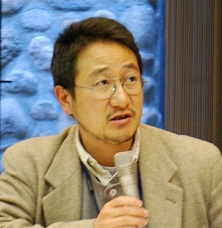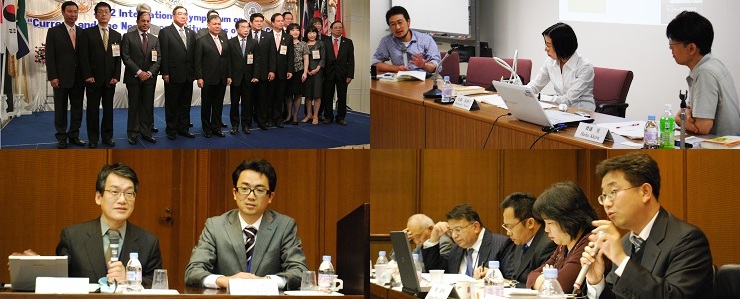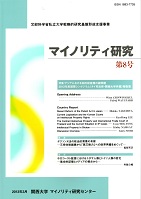Statte-Formation and Minorities
In the “State-Formation and Minorities” study group, we criticized the
conventional theory of State as a normative theory for regulating power and
mobilizing its members, to achieve a more comprehensive perspective of State activity, and then focused on the processes of State formation in ever
country in the world . Generally speaking, the processes of State formation are those of (re)defining boundaries, which necessarily brings exclusion,
inclusion, assimilation, and integration. Accordingly, we believe that these
processes make those who are out of its normative sphere “minorities”.
Based upon this understanding, we sought a proper perspective suitable
to describing the variety of State-formation processes. For that purpose, we
intended to organize an interdisciplinary research group, constituted mainly of scholars of Area Studies and Historical Studies of various states, countries, and regions in the world. We also investigate d the relationships between State formation and minorities in a particular place and a particular time, within the following three themes: 1) a revision of the western State-formation process in the early modern period, 2) re-consideration of the Nation-State model in contemporary western countries in the face of emigration and immigration, and 3) applicability or inapplicability of the model to a non-western country in its State formation. In spite of the limited schedule and many difficulties, our group successfully produced a series of papers and developed new linkages with another scholars of similar research fields.
Now that we face various cases of the relationship between State formation and minorities, diachronically and synchronically, the next expected stage should not only be further development of case studies of other particular times and places, but also Comparative Studies to achieve a
more comprehensive framework. We do hope that every member will proceed
with the possibility of moving to comparative studies even after the end of
this project of the Center for Minority Studies.

Masataka YASUTAKE(Group Leader)
JAPANESE



